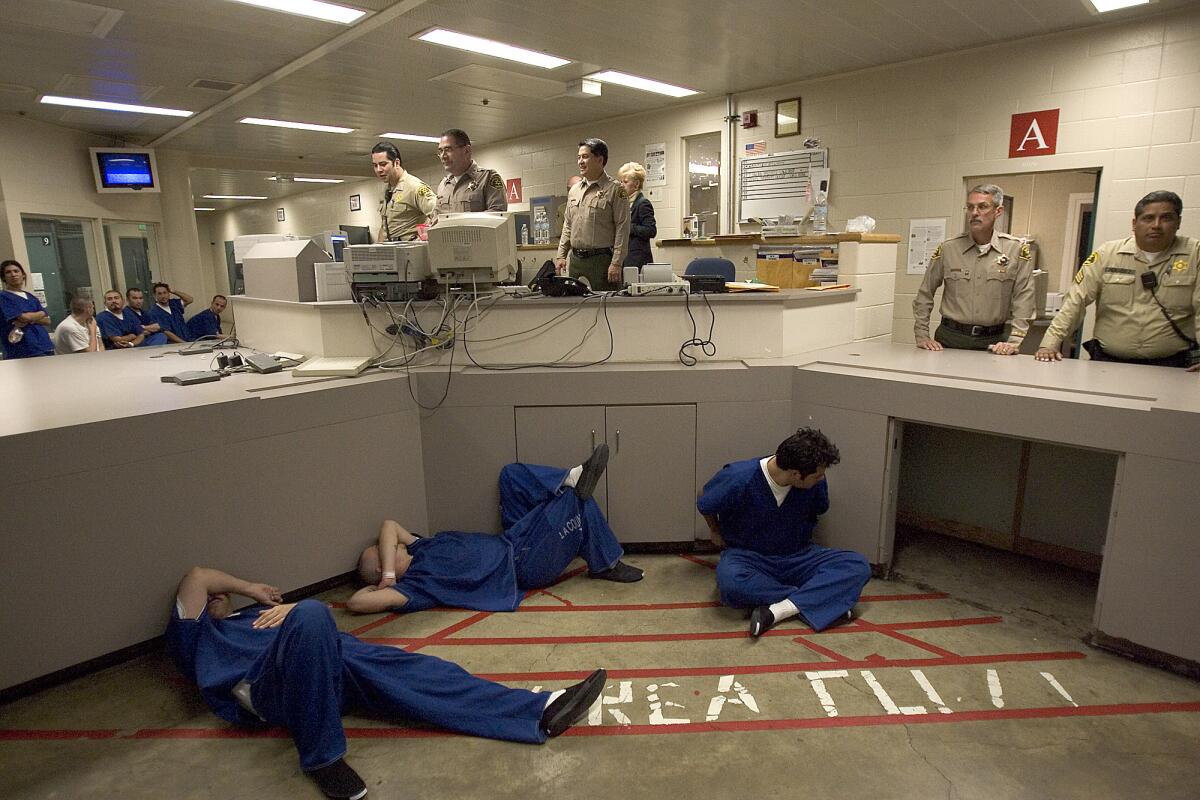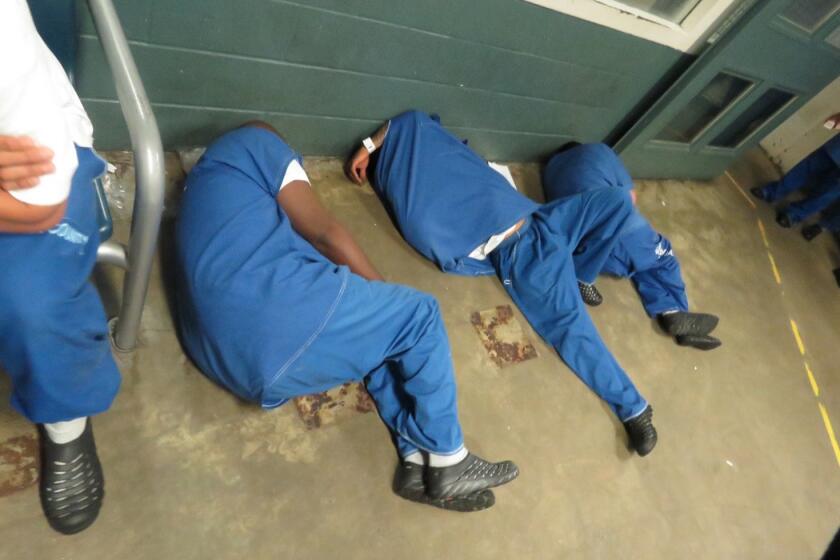L.A. County and ACLU reach ‘extraordinary’ agreement to address jail conditions

- Share via
Los Angeles County and the American Civil Liberties Union have reached an agreement to settle a lawsuit that alleged “barbaric” conditions in county jails, officials announced Friday.
As part of the proposed settlement — which still requires court approval — the county agreed to limits on how long detainees can be held at the inmate reception center in downtown L.A., as well as how long inmates can be handcuffed or tethered to chairs and benches there.
The county also committed to depopulating the jail by diverting some people into noncarceral beds.
In a statement, county officials said the agreement “recognizes the improved conditions in the inmate reception center resulting from the remedial actions taken by the county in recent months to improve waiting times, overcrowding and unsanitary conditions.”
L.A. County jail inmates are left to defecate in garbage cans and sleep chained to chairs or benches, ACLU alleges in demand for an emergency court order
Corene Kendrick, deputy director of the ACLU’s National Prison Project, called the settlement “extraordinary” and “groundbreaking.”
“The county is putting its money where its mouth is in trying to depopulate the jail,” Kendrick said in an interview Friday.
“This is incredibly rare,” she added.
Normally, a jail or jurisdiction’s reforms will end at hiring additional mental health staff, which L.A. County also agreed to, serving better food or letting detainees out of their cells more often, Kendrick said.
“This actually addresses some of the root causes of why the jails in L.A. have become the dumping grounds for the failed mental health and other systems that are just failing so many people in the county,” Kendrick said.
The agreement, the latest move in a class-action lawsuit originally filed in the 1970s, comes months after the ACLU filed a motion in September raising concerns about poor conditions at the inmate reception center — where recently arrested detainees, many who had not yet been arraigned, reportedly defecated on the floor and in food containers, were handcuffed in place for dozens of hours and denied medications for mental illnesses.
In response, a federal judge signed a temporary restraining order to address the conditions in the inmate reception center.
ACLU lawyers asked a federal judge to find L.A. County, sheriff and supervisors in contempt of court for failing to fix conditions in the county jails.
The ACLU requested in February that Los Angeles County Sheriff Robert Luna and the Board of Supervisors be held in contempt, alleging that the county had not lived up to the requirements of the restraining order. They accused the county of flouting court orders by chaining inmates to benches and gurneys for hours at a time, locking people in cells covered with trash and feces, and leaving them to sleep on crowded intake center floors with nothing but plastic bags to keep warm.
Under the agreement announced Friday, the L.A. County Sheriff’s Department, which operates the county’s jails, is barred from holding an inmate in the reception center for longer than 24 hours or handcuffing or tethering an inmate to an object for more than four hours.
In order to decrease the jail population, the county will also agree to create more than 500 noncarceral beds for people found incompetent to stand trial, as well as nearly 1,700 for people with mental illness.
Along the way, the county will have to provide quarterly reports to the court detailing progress toward compliance.
In a release Friday, the county highlighted progress officials have already made, saying they have announced bonuses for jail healthcare workers, added a compliance sergeant position in the inmate reception center and retrained staff on legal requirements and wait times.
Times staff writer Keri Blakinger contributed to this report.
More to Read
Sign up for Essential California
The most important California stories and recommendations in your inbox every morning.
You may occasionally receive promotional content from the Los Angeles Times.












